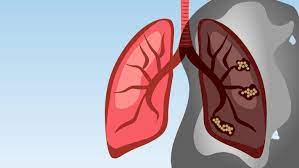
Lung cancer has seen a significant increase in recent years, with cases continuing to rise. While smoking is often associated with this disease, it’s crucial to recognize that lung cancer can affect non-smokers as well. Understanding the primary causes of lung cancer in non-smokers is essential for raising awareness and early detection. Here are some prominent factors contributing to lung cancer in non-smokers:
1. Increased Air Pollution:
- Prolonged exposure to elevated air pollution levels from sources like cars, power plants, and industrial facilities can significantly raise the risk of lung cancer. Areas with high concentrations of PM2.5 particles pose a particular health threat.
2. Radon Gas Exposure:
- Radon gas, a byproduct of uranium decay, is a chemically inert gas and a leading cause of lung cancer. Homes built on uranium, radium, and thorium-rich soil can have higher radon levels, making prolonged exposure a significant risk for non-smokers.
3. Secondhand Smoking:
- Non-smokers who spend time among smokers can inhale harmful cigarette smoke, increasing their risk of developing lung cancer. Passive smoking exposes individuals to thousands of compounds, many of which are known to be dangerous.
4. Workplace Exposure to Carcinogens:
- Certain workplaces contain carcinogenic substances such as asbestos, arsenic, silica, diesel exhaust, pesticides, dust, and fumes. Employees in industries like mining, construction, and manufacturing may face a higher risk of lung cancer if exposed to these toxic materials.
5. Genetic Factors:
- Genetic predisposition can also play a role in non-smokers developing lung cancer. Family history of the disease can increase the risk, indicating that hereditary factors may contribute to its development.
Other factors like radiation exposure and pre-existing lung conditions such as tuberculosis, asthma, emphysema, and chronic obstructive pulmonary disease (COPD) can further elevate the risk of lung cancer in non-smokers.
It’s essential to be aware of these factors and undergo regular health check-ups to detect lung cancer early, especially for non-smokers who may not suspect they are at risk. Early detection and timely medical intervention can significantly improve outcomes.